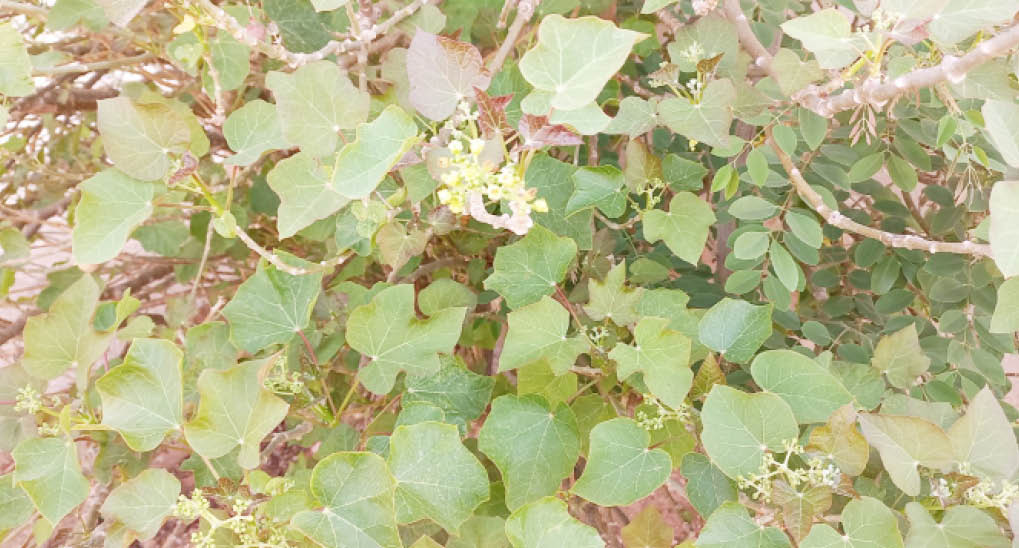Despite growing climate change challenges exacerbated by continued fossil fuel extraction and usage as well as land degradation occasioned by fast-paced desert encroachment, jatropha plant offers a renewable energy solution and a buffer against desertification.
Jatropha, a plant, which thrives under arid conditions has emerged as a vital safeguard against the menace of desertification. The plant, which has social, agricultural, environmental, industrial and pharmaceutical as well as energy production potential, if cultivated on a large scale across the northern region can reclaim lost land and provide alternative source of energy.
The fossil fuel, environment and renewable energy intricate web
Since the discovery of oil in 1956, the Nigerian economy has been dependent on fossil fuel as a means of energy generation, thereby causing excessive emission of carbon dioxide in the environment.
It has been established that when fossil fuels are burned, they release large amounts of carbon dioxide, a greenhouse gas, into the air. The greenhouse gases then trap heat in the atmosphere, contributing largely to global warming.

Many countries across the globe have scaled down their use of fossil fuel as a response to the climate change problem but in Nigeria, even with commitments to do that, there hasn’t been any clear pathway to producing alternative sources of cleaner energy.
Though biodiesel is a renewable, biodegradable fuel manufactured domestically from vegetable oils, animal fats, or recycled restaurant grease, its production in the country hasn’t made any impact. The fuel meets both the biomass-based diesel and overall advanced biofuel requirement of the Renewable Fuel Standard.
Failed efforts
Though efforts were made during President Goodluck Jonathan’s administration to cultivate the plant on a large scale and set up factories for the production of bio-fuel as an alternative source of energy, the initiative did not see the light of the day.
Many farmers were encouraged to farm the jatropha plant from which seeds oil is extracted and bio-diesel is produced. Also, the byproducts of the diesel, which is extracted from the glycerol, can produce many other products that have economic value such as insecticides, shampoo, soap, detergent, candles and cosmetics, among others
At least 120 jatropha farmers in Katsina State were clustered in response to the presidential initiative and they cultivated over 1000 hectares of the plantation spread across the state but the federal government failed to set up the biodiesel producing factory.
The farmers in Katsina once cried out over their neglect despite being pushed into the business by the government ahead of the proposed establishment of a bio-fuel refinery then in Kogi State.
The Chairman of Jatropha International Merchants and Dealers Association, Sen Ahmed Sani Stores, at a press conference, said farmers were encouraged to plant jatropha for the production of seeds that would be processed by the refinery.
He said after they invested a lot in its farming, the government abandoned the initiative with no support or incentives to the farmers.
‘’The initiative for the production of bio-fuel as an alternative source of power was initiated during Jonathan’s administration but abandoned along the line. Jatropha is a plant where we get glycerol for power and other pharmaceutical products,’’ he said.
He called on President Muhammadu Buhari to take a look at the idea and build on it for the farmers’ benefit, adding that with bio-fuel, the society will be better off.
“Jatropha farmers are ready and willing to partner with the government in order to provide an alternative source of energy as is done in countries such as South Africa, India and Brazil,’’ he added.
A farmer, Alhaji Mamman Danmusa, who owns about 150 hectares of the plantation, believes that having a bio-fuel refinery would go a long way in addressing fuel-related challenges in the county. He said with abundant land from both government and farmers, jatropha provides viable economic opportunities as well as energy and environmental solutions.
For Dr. Armayau Mohammed, jatropha farmers were ready to partner with government to provide an alternative source of energy, adding that “All we need is support from the government to encourage its production.”
He revealed that jatropha can be planted with other crops and that it helps to reduce soil acidity and increases its fertility and also prevents desert encroachment, adding that it can grow in almost all types of soil.
How Walin Hausa plantation pioneered the production process
A former President of the Appeal Court, Alhaji Umaru Abdullahi, in collaboration with others, started a large jatropha plantation at Batagarawa where biodiesel was produced from the seeds of the plant.
One of the managers of the farm, Dr Abduljalil Umar Abdullahi, said it was in appreciation of the uncountable economic values of jatropha that the farm came into being, as a pilot project.
“We set out to carry out the project, we planted a vast area of land and we have already begun the real processing of the seeds where we extracted the diesel and many of the other by-products.
“Women were also trained on how to produce several of those products from the glycerol.
“It was, as I said, a pilot project just to show that it was feasible, and the economic potential was there for everyone to see. It was given wide publicity and awareness was created and many farmers have ventured into the plant farming. There are still other large plantations of jatropha at Malumfashi and Danmusa, aside several smaller ones, which are scattered all across the state,” Dr Umar said.
He added that there was serious interest shown by the Federal Ministry of Agriculture then, but unfortunately, the commitment was not there to make any progress.
“We had a series of meetings with the ministry, facilitated by Bionas, but unfortunately, nothing came out of it up till today and we have since stopped our production,” he said.
A visit to the farm and factory revealed that while the plantation is still in place due to the resilience to weather and the long lifespan of the plant, the factory has closed down and remained fallow as no support was forthcoming from the government.
Katsina, Bionas sign a $199m MoU on battling desertification in 11 LGAs
In October last year, the Katsina State government signed a Memorandum of Understanding (MoU) with a Malaysian firm, Bionas, to invest $199m for the production of bio-fuel from the jatropha plant in the state.
The MoU, which was signed by the Bionas Nigeria on behalf of Bionas Malaysia at the Government House Katsina, would involve the management of domestic waste for clean energy production.
Speaking during the signing ceremony, Governor Aminu Masari, said the project, apart from its “unquantifiable economic benefits,” will also help in preserving the environment and addressing issues of climate change.
“The environment was saved for us and it is now our responsibility to save the environment for future generations. So as a government, we will continue to give all the necessary support to this project, to ensure that before we leave office in 2023, the project is properly on ground,” he said.
In his remarks during the signing of the MoU, the Special Adviser to Katsina State governor on Agriculture, Dr Abba Abdullahi, said the project was in line with five sustainable development goals number 1, 7, 11, 13 and 17.
He said the two-in-one investment project consisting of jatropha agropolitant clusters and waste management for clean energy will consume $7m and $192m respectively.
Dr Abdullahi said all the financial aspects will be handled by Bionas while the Katsina State government will only provide land as equity, adding that it was also in partnership with the federal government.
He added that the project will be implemented in 11 frontline LGAs in Katsina State, which includes Batsari, Baure, Daura, Jibia, Kaita, Katsina, Mai’Adua, Mashi, Zango and Sandamu.
When contacted recently, the S.A to the governor, said plans were underway for the formal take-off of the project. It was not clear, however, whether plantations like that of Batagarawa, Malumfashi and Danmusa would benefit from the project as they fall outside the 11 earmarked LGAs.

 Join Daily Trust WhatsApp Community For Quick Access To News and Happenings Around You.
Join Daily Trust WhatsApp Community For Quick Access To News and Happenings Around You.


